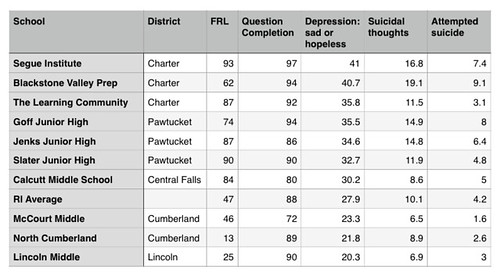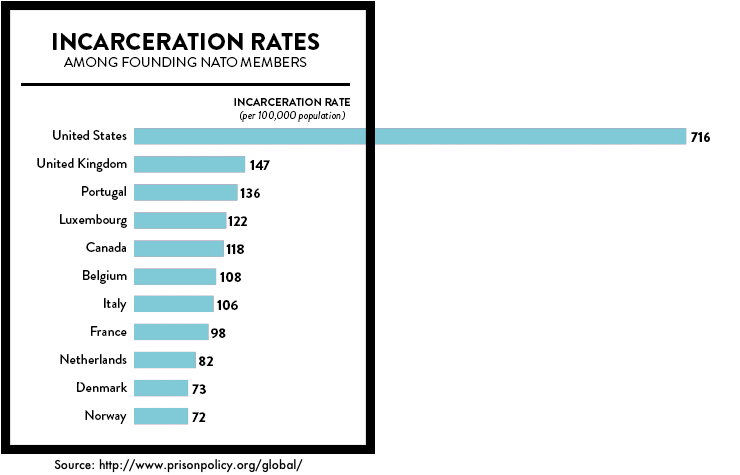Longtime readers know I avoid getting into math discussions, but I got sucked into this one, partly because my 5-year old spent a few dinnertimes recently proudly counting to 100, so I can relate.
Jason Zimba:
While it is true that many of the oldest state standards only asked kindergarten students to count to 20, more recent standards went higher, to “at least 20” or “at least 31” or up to 100 (see Washington D.C., Georgia, Minnesota, Virginia, and Washington). One reason older standards were limited to 20 was that those standards didn’t distinguish clearly between rote-counting (saying the number words) and cardinal-counting (telling how many). CCSS makes this crucial distinction evident. The National Research Council’s report “Mathematics Learning in Early Childhood: Paths Toward Excellence and Equity” is also clear that counting to 100 is appropriate in kindergarten.
This is in response to Carol Burris referring to counting to 100 as "developmentally inappropriate" and citing the previous Massachusetts curriculum which only required counting to 20 in kindergarten.
The Common Core standard we're discussing is:
CCSS.MATH.CONTENT.K.CC.A.1
Count to 100 by ones and by tens.
Getting caught up in what more recent state standards said is a waste of time. What does it prove? Besides, I looked up Minnesota's sandards, since I think they're the highest achieving of the lot Zimbra refers to, and their 2007 standards only required "Count, with and without objects, forward and backward to at least 20," so...? Virginia's SOL's, for what it is worth, are more rigorous than Common Core:
The student will
a) count forward to 100 and backward from 10;
b) identify one more than a number and one less than a number; and
c) count by fives and tens to 100.
Again, so...?
I would note that it looks like the NECAP GLE's do not include any specific expectations for counting in kindergarten at all, which would seem to be a serious oversight.
In terms of international comparison, it seems like most high performing countries do not require counting to 100 in the equivalent grade, but ultimately it is a little hazy from this distance because at this grade level (kindergarten), the exact start age becomes rather important, and it is hard to feel too authoritative about that from wikipedia and some web searches.
Anyhow, moving on, the line about earlier standards not distinguishing between rote and cardinal counting is beside the point if we're taking Massachusetts as the starting point, as it seems clear on the matter:
K.N.1 Count by ones to at least 20.
K.N.2 Match quantities up to at least 10 with numerals and words.
All this standards comparison is inconclusive. The only thing that would be convincing is if there was a consensus among the standards and curricula of high performing systems about counting in kindergarten, and there is not.
Finally in the last sentence, we get at least a reference to something substantial, a National Research Council report. Now this is an interesting read! They actually try to explain the rationale and refer to peer reviewed academic research! And, upon closer examination, insofar as I can follow everything up, it seems consistent in arguing that yes, five year olds can be taught to count to 100. Indeed, they argue that pre-school students can count to 39 at age four. So... this is a considerable outlier compared to the existing curricula of high performing countries.
They do discuss important international differences in counting based on the language. Asian languages handle counting more systematically, putting particularly young children at an advantage.
There is a strong equity angle in the report, emphasizing that because English counting is so irregular, less familiarity with the quirks of counting in English puts some populations at an immediate disadvantage, which should be remediated as soon as possible.
I found this convincing that kindergarten students can count to 100. This is not a huge leap anyhow because, as I mentioned, my kindergartener daughter just learned that in school.
There is one more point I would quote from the Common Core, from the introduction to the math section, which I think is telling about the course of this debate:
Standards define what students should understand and be able to do.
What do we mean by "should," when we are talking about five year olds? If we were reading an IETF specification (for example), we would know:
In many standards track documents several words are used to signify
the requirements in the specification. These words are often
capitalized. This document defines these words as they should be
interpreted in IETF documents. Authors who follow these guidelines
should incorporate this phrase near the beginning of their document:
The key words "MUST", "MUST NOT", "REQUIRED", "SHALL", "SHALL
NOT", "SHOULD", "SHOULD NOT", "RECOMMENDED", "MAY", and
"OPTIONAL" in this document are to be interpreted as described in
RFC 2119.
Note that the force of these words is modified by the requirement
level of the document in which they are used.
- MUST This word, or the terms "REQUIRED" or "SHALL", mean that the
definition is an absolute requirement of the specification.
- MUST NOT This phrase, or the phrase "SHALL NOT", mean that the
definition is an absolute prohibition of the specification.
- SHOULD This word, or the adjective "RECOMMENDED", mean that there
may exist valid reasons in particular circumstances to ignore a
particular item, but the full implications must be understood and
carefully weighed before choosing a different course.
Why can't learning standards be written this way? Because the entire field is sloppy and immature.
As it stands, we never really know if we are arguing about whether all students "should" or "MUST" do something when we are talking about the Common Core, particularly down at the kindergarten level. In practice, it means MUST. To argue that it is appropriate to act as if students "can" do something at five is not the same as proving that they MUST.
And ultimately we slide back around to the question of curriculum vs. standards. The NRC report does a good job of arguing that counting to 100 should be a goal of the curriculum in kindergarten, but whether this MUST be achieved by the end of the year is not addressed. Indeed, first grade picks right up with "See, Say, Count, and Write Tens-Units and Ones-Units from 1 to 100" as a major goal and makes clear that this is an ongoing process throughout these years with students progressing at different rates.
My problem with the standard as written is simply that to me, to the extent you're going to have standards for kindergarten, they should reflect not what you want to include in the curriculum, but benchmarks that if not met would represent an issue that required immediate remediation. I am not convinced that not counting to 100 in kindergarten meets that test, but I suspect not counting to 20 would. But maybe that's not the right test? Who the hell knows? It isn't defined.
We simply don't have the language to speak clearly about these issues. It is a disaster.












